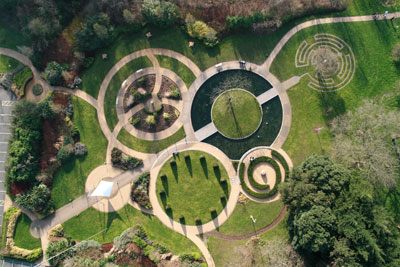
June 19, 2016, by Brigitte Nerlich
Science and politics in an uncertain world
Our end of award conference is taking place on Wednesday 22 June and I know that I should be writing something cheerful and upbeat about our programme, what we have done and are still doing. However, the conference is happening at a difficult time, and somehow I have lost my blogging enthusiasm.
The conference is taking place in the shadow of the terrible events in Orlando in the US and the killing of the MP Jo Cox here in the UK. Jo Cox should have celebrated her 42nd birthday on 22 June, the day our conference takes place. To commemorate and celebrate her remarkable life, there will be a public gathering in Trafalgar Square and our thoughts will be with the people gathered there.
The day after our conference, on 23 June, the Referendum will take place, when the people of Britain have to decide on one of the most important issues for generations, namely whether to stay in the EU or leave. The repercussions of such a political decision for the future of science in the UK are immense.
The end of award conference will be an international gathering, where people from around the world will talk about ‘science and politics’ (this was the title of the original call for research programme proposals issued by the Leverhulme Trust in 2010). We called our research programme ‘Making science public: Challenges and opportunities’. When we were writing our proposal, initiatives focusing on openness and transparency in science, around making science public and making science in public were only just on the horizon. Now issues around open science, open data, open access, open policy, transparency, accountability, responsibility and democracy are everywhere – surrounded by opportunities and challenges…
As my colleague and deputy director on the programme, Sujatha Raman, has said in our conference ‘blurb’: “far from being a clear-cut solution, these agendas to make science public raise diverse and potentially contradictory concerns. For some, patterns of excluding unruly publics or inconvenient evidence, or prematurely closing down the framing of policy options are being reinforced in a new guise. For others, mechanisms for making science public only deepen the forces of bureaucracy and market-centric valuations of research and evidence. Concerns have also been raised about the degradation of the public sphere and the challenge of addressing matters of public interest in this context. We therefore ask: Where does this leave the agenda for what has been called the ‘democratisation of science’? How can the links between science, policy, innovation and the public be reconstructed at a time of major political changes including austerity?”
We could not have foreseen the major political changes, indeed the storm clouds of political debate that have now gathered and which will hang over our conference. However, I still hope that we will be able to discuss what our programme has achieved over the years in a convivial setting and in a cordial way; all the while remembering those who have practiced and those who still practice a politics of openness, generosity, integrity and kindness; and all the while hoping to wake up to a world where science can be carried out in the same way, unimpeded by geographical or ideological boundaries.
Image: Millennium Garden, University of Nottingham

[…] Science and politics in an uncertain world Comments […]